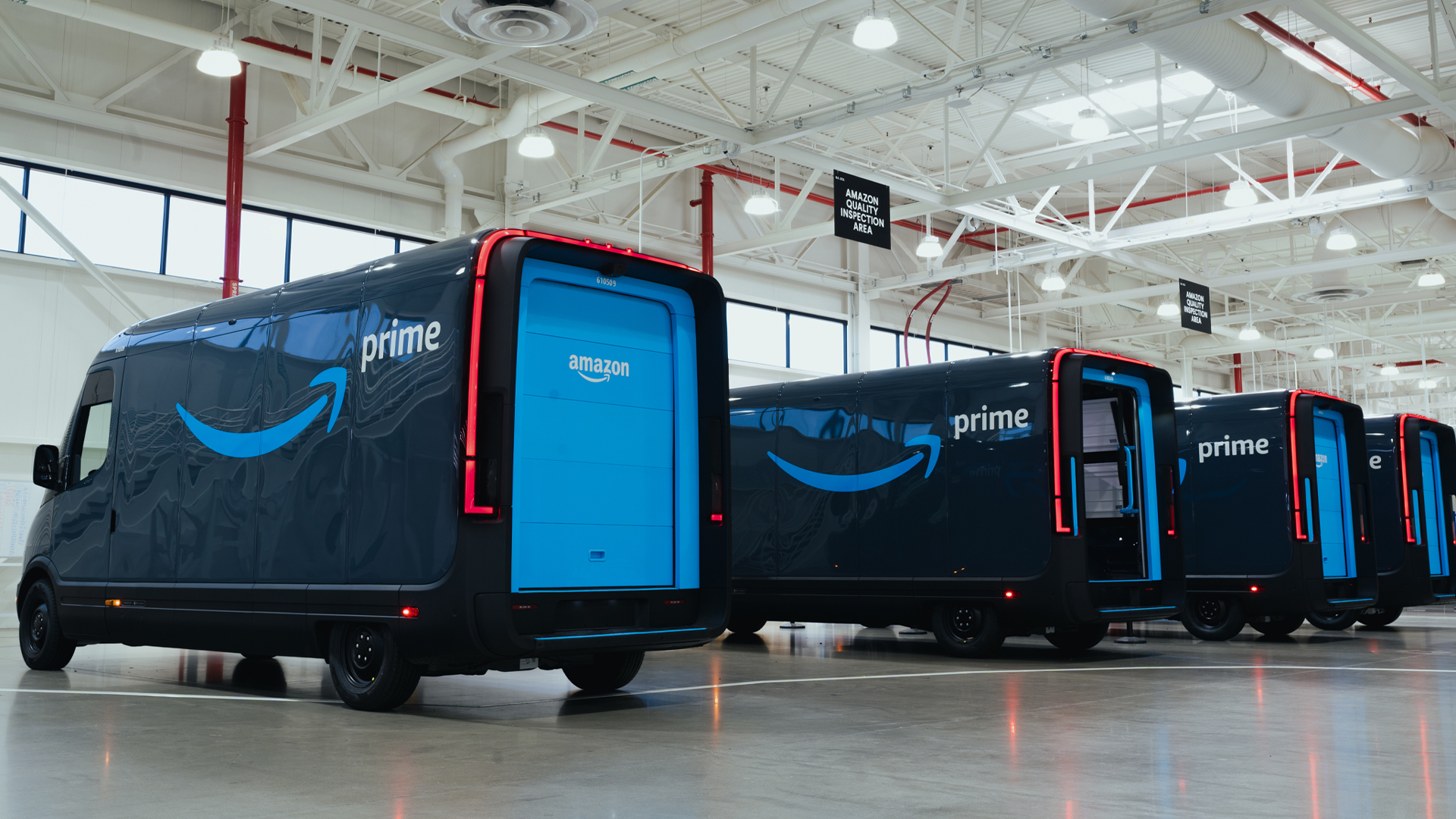

We may earn revenue from the products available on this page and participate in affiliate programs. Learn more ›
Amazon’s annual Prime Day has come and gone, but for Rivian, it’s prime time to announce that its production fleet of Amazon-branded Electric Delivery Vehicles (EDVs) are now hitting roads across America.
Rivian and Amazon first announced their partnership nearly three years ago, back when Rivian was still very much a startup. At the time, Amazon committed to ordering 100,000 units of Rivian’s EDVs, while Rivian got a huge influx of cash from the eCommerce giant in exchange for a 20 percent stake. Now those battery-powered cargo vans are finally rolling off the assembly line and up to consumers’ front doors.

Today, the EDVs are rolling out to larger cities to cover Amazon’s last-mile delivery. These include Baltimore, Chicago, Dallas, Kansas City, Nashville, Phoenix, San Diego, Seattle, and St. Louis. That’s just the start, as Amazon expects thousands of its new electric delivery vans to make their way to over 100 cities by the end of 2022.
Amazon says that it has installed “thousands” of charging stations at its delivery stations across the U.S. and plans to continue building out its own charging infrastructure for its fleet of EDVs.

Meanwhile, Rivian is also making some moves of its own apart from Amazon. As Reuters recently reported, the automaker’s CEO R.J. Scaringe confirmed that the company was working on “a host of other applications in the commercial space,” built on the underpinnings of the EDV built for Amazon.
The platform, called the Rivian Commercial Vehicle (RCV), will be used as the foundation for future endeavors with other players outside of the last-mile delivery space. Scaringe says this could include cargo and work trucks, as well as other applications with unnamed commercial customers that Rivian has been in talks with.
On the consumer side, Rivian is still working to meet its demand for the R1T pickup and R1S SUV. The company has also said that it expects to begin building its upcoming mid-size R2 vehicle in 2025. Production is planned to take place at Rivian’s future $5 billion plant in Georgia. If all goes well, Scaringe expects Rivian to grow its annual production output to 1 million EVs by 2030.
Got a tip or question for the author? Contact them directly: rob@thedrive.com
